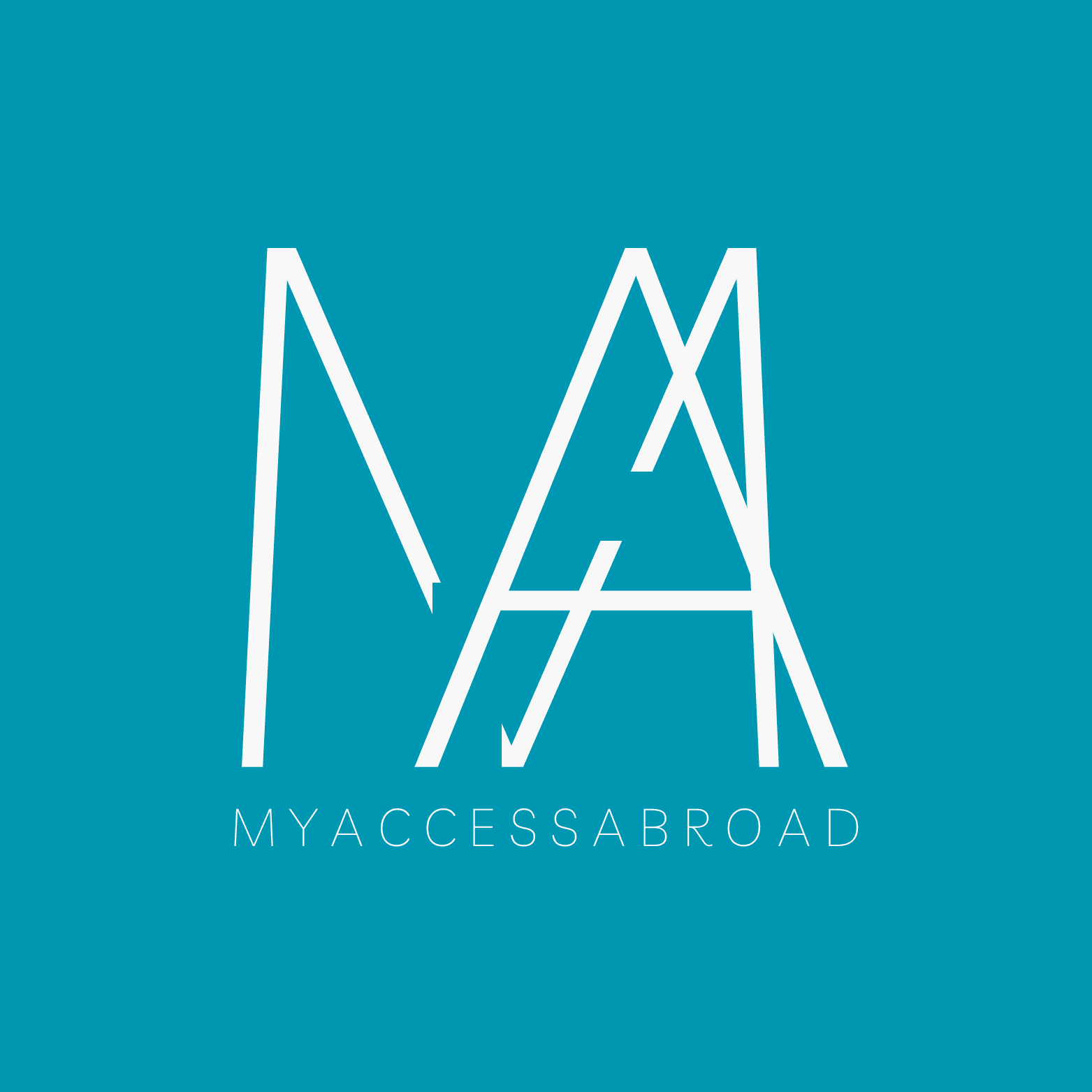
Written by Brice Rosette
So, you decided to start an international career? Long-term, international careers can bring you a higher income, career advancement, better quality of life, and more importantly, a better perspective. I know exactly the feeling of looking for a job in a new country. In this article, I seek to answer a big question I had myself: how do you actually do it?
Step 1: International job search planning
When looking for jobs abroad, it’s essential to have a clear strategy. It’s more of a marathon than a sprint. You should plan each monthly and weekly action in your agenda and set realistic targets. Having a clear roadmap ahead will help you keep on track and feel less overwhelmed.
What to include when planning your international job search:
- Define your milestones: you need to research your target destination, identify your niche, set up your personal brand, start networking and apply to positions.
- Add your weekly goals in your calendar: over the next 3–4 months, what are your goals? What daily and weekly actions will you take? What industry/networking events will you attend ? You may want to leverage an international job search coach or an “accountability partner” that has the same goal as you and schedule bi-weekly calls.
Step 2: Research Target Destination
This is the fun part. When thinking about working abroad, the first thing on your mind may be where. Start by researching potential destination countries that align with your career goals (vs. local job market needs), lifestyle preferences, and language proficiency. When you are set, narrow it down to one specific city.
What to consider when researching your abroad destination:
- What is your ‘why’? Take some time to reflect on why you want to work abroad. Is it for professional development, cultural immersion or simply yo have a new experience? Having a why will be important in later stages when building your story.
- Relocation factors: Consider job market demands, costs of living, quality of life and visa regulations. Websites like Expatistan or Numbeo can provide valuable insights into living expenses and local conditions.
Step 3: Identifying your niche
You can’t be all things to all people, especially when looking for jobs abroad. You need a niche — a specific area in which you are a specialist/expert and can provide value. Identifying your niche will help you narrow down your potential target employers/clients and increase your chances of being approached by recruiters for your specific knowledge and expertise.
What to consider when identifying your niche
- Consider asking for feedback: How do others perceive your value in the market? What do people think you excel at? Consider asking for feedback from your manager, coworkers, friends, and even former coworkers. You may even want to seek out a mentor or career coach to discuss your positioning.
- Think about what problem you solve: There is no “job” opening without a problem. Take some time to reflect on the issues you are solving in your day-to-day life. Ask professionals in your field what concerns they are facing. If you are client-facing, identify patterns your clients usually ask you to solve. If you don’t have any experience yet, consider starting a project (newsletter, blog, podcast etc…) or volunteering in your targeted niche to identify solutions to problems.
Step 4: Polishing your resume and personal branding
You need a solid branding to be able to stand out from the crowd. Start by researching the tweaks you need to make to adapt your resume to local requirements and update your LinkedIn profile. Remember to give it your personal touch.
What to consider when building your personal brand:
- Create your own story: Facts tell, but stories sell. Take some time to reflect on your career choices and the underlying storyline in your professional trajectory. Keep in mind that you are the only one who knows your story.
- Highlight your results: When crafting your resume or building your LinkedIn profile, focus on your results rather than your operational day-to-day tasks; think about your LinkedIn profile like a lead magnet. Give them enough results so they want to know more, via an (in)formal interview.
Once you’ve worked on your resume and updated your LinkedIn profile, you’ve essentially created a digital footprint for your international job search. You don’t need to change your resume every week. If you land interviews, it means that it’s working! (Disclaimer: make sure to tailor it for specific roles on an as-needed basis).
As an optional next step, consider creating a simple personal website. It’s a quiet but powerful way to reinforce your professional identity. Whether you use it to showcase projects, start a consultancy or a research project, it gives people a clearer sense of who you are and what you stand for.
I personally started out with platforms like Wix and GoDaddy, which are great for getting something up quickly. But over time, I switched to Hostinger combined with WordPress.org. It’s a more affordable setup and gives me much better control over the design and functionality of my site. Even if you’re just starting out, this combo offers a lot of flexibility without overwhelming you.
If you’re thinking about setting up your own site, you can use my referral link to get started with Hostinger.
Note: This is a referral link, which means I may receive a small commission if you sign up—at no extra cost to you. I only recommend tools I’ve personally used and found helpful.
Step 5: Putting in the work to find jobs abroad
A job abroad is not found on its own (although AI can automate a big chunk of it). What we shared above are a set of systems, habits, and processes to ensure you’re moving forward with a clear roadmap.
Job Search Strategy: Map out a list of potential employers/clients based on your niche and previous work experience. Consider direct/indirect competitors, suppliers, or other firms based on your aspirations. Limit the amount of companies you are targeting to begin with to dig into the outlook for hiring/growth. Leverage LinkedIn to identify expats, recruiters, or leaders to connect with. Iterate and repeat until you get meetings and/or more information.
Build your network abroad: When looking for jobs abroad, a lot of people think they have no network. Start with the three most common networks: education (professors, alumni etc..), professional (past employers, industry groups etc..) and community (chamber of commerce, consulate, etc..). It’s essential to build a network in your targeted destination, so you can be referred/gain knowledge on potential work opportunities. Start with reasonable and achievable weekly targets of people to contact and connect with.
Prepare for international interviews: Culture plays a major role in work etiquette and work culture in terms of feedback, persuasion, and leadership style. Ace your interviews in a foreign country by researching cultural norms and etiquette. Consider networking with immigrants and expats, practice common interview questions, your elevator pitch and visa sponsorship negotiation scenarios, paying attention to the way you tailor your presentation to fit the culture. You may consider leveraging coaches that have experience in your targeted destination to build interview prep confidence.
International job search mentoring: Seek guidance from professionals who have been in your shoes before. Finding a new job abroad is intimidating, especially if this is the first time you’ve considered living in a new country. There is no shame in asking for help, especially when you want to be successful.
In a nutshell:
- Start by intentionally breaking down your milestones into a weekly routine.
- Get specific with your destination. Narrow it down to a city.
- Know and leverage your niche.
- Market yourself – start with a clean LinkedIn profile & resume.
- Put in the work and iterate.
Look Beyond the Job Search:
With the rise of AI, your international job search will only become easier, especially when you need visa sponsorship. In my opinion, it will also increase the bar of hiring from the employer side. Candidates and employees alike will be required to learn how to leverage AI to optimize business operations in all industries. Learning about how AI is transforming both the industry and the way people work in your field might be the key to bring additional value during interviews.
About Brice Rosette
He was born in the suburbs of Paris, France and was raised between metropolitan France and Martinique. Since then, he has lived in the US, Mexico, and now China. His interests include technology, entrepreneurship, and global talent mobility. He is a co-founder of My Access Abroad, an online platform aiming to bridge the gap in accessing abroad.
